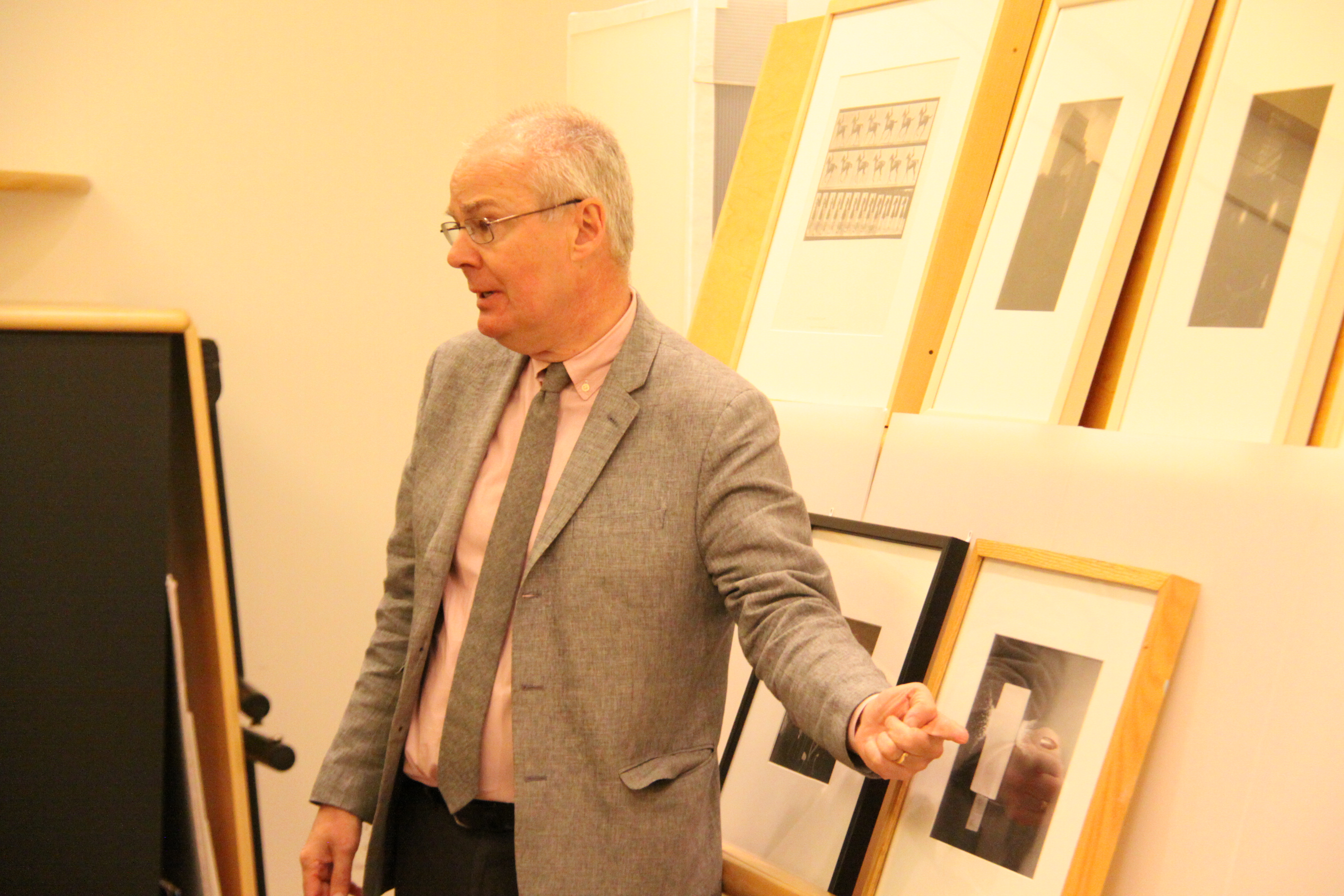
Zach Wood is a sophomore at Williams College and the president of Uncomfortable Learning, a student-run group that invites provocative speakers to speak on campus. (Kirk Carapezza/WGBH)
Williams College sophomore Zach Wood is president of Uncomfortable Learning, a student-run group that invites provocative speakers to the private liberal arts campus tucked deep in the beautiful woods of the Berkshires.
“We do want speakers who are going to bring opinions that are going to jar people into thinking critically - not something that you’re already hearing everyday by many professors here,” said Wood.
In an effort to foster conversation on the a campus he describes as "predominantly liberal," last month Wood invited freelance writer and former National Review columnist John Derbyshire to speak on campus.
The decision to invite Derbyshire was a controversial one. In 2012, the writer was fired from the National Review after writing an article that was widely viewed as racist. Derbyshire has also been described as sexist because of the content of some of his speeches.
But Wood, who is African-American, says that is precisely why the group invited the writer to campus.
“We thought that it was important for students to consider how national identity and immigration play into the issue of race, and we thought that Derbyshire brought a view that students were not hearing on campus. That’s part of the reason why we thought it could be conducive to intellectual discourse for students to hear."
Wood says he felt the backlash immediately after making the announcement online.
“Within the first two to three minutes of the Facebook event being created students were already commenting,” Wood recalled.
Some of those comments attacked Wood’s character and questioned his intentions.
“People have called me everything from a sell-out for bringing a speaker like Derbyshire to a misogynist to an anti-feminist to a conservative," said Woods.
When Williams President Adam Falk learned that Wood had invited Derbyshire to campus, he found himself in a tough position.
"I think it's important to recognize that [Derbyshire] is very extreme in not only what he says but how he says it," said Falk.
After research and discussion with Williams administrators, President Falk made the difficult decision to cancel the speech.
“We have said we wouldn’t cancel speakers or prevent the expression of views except in the most extreme circumstances. In other words: There’s a line somewhere, but in our history of hosting events and speeches of all kinds, we hadn’t yet found it. We’ve found the line. Derbyshire, in my opinion, is on the other side of it,” President Falk wrote in a letter to the Williams community, just 48 hours before the scheduled speech.
"I felt that it was not appropriate for the college to give a platform to someone who’s purpose and effect of coming here would be simply to insult, in vile terms, certain members of our community," said President Falk.

Art history professor Michael Lewis says Williams President Adam Falk should not have disinvited John Derbyshire from speaking on campus. (Kirk Carapezza/WGBH)
Many Williams students and faculty supported President Falk’s decision. Others, like art history professor Michael Lewis, say he made the wrong decision.
"To forbid a speaker from coming is very heavy-handed. It's working with a blunt instrument," said Lewis, a political conservative who has taught at Williams for the past 23 years and notes increased politically correctness. "We should be making a concerted effort to bring in people who are not like us, hopefully are smarter than us and we tend not to do that."
Related: At Wellesley, A Conservative, A Libertarian, And Some Liberals Walk Into A Classroom
Debates about free speech surrounding hot-button issues like race aren’t new in higher education. But some free speech advocates worry that Williams and other college campuses have become so politically correct - so worried about upsetting students, tuition-paying parents and wealthy donors - that they’re creating a chilling effect.
During this past academic year alone, speakers have been challenged or disinvited from speaking at the University of California, the University of Notre Dame, Duke University, Oberlin College, Harvard University, Princeton University, and the University of Alabama, among many others.
Free speech advocates say this type of censorship is unprecedented.
“Colleges and universities should be more honest in what their slogan is," said Harvey Silverglate, a longtime civil rights attorney in Cambridge. "The defining slogan is, ‘No trouble on my watch.’ That’s the fondest wish administrators in American higher education. Their fondest wish should be to produce educated citizens.”
As colleges worked hard in the 1980s to bring in more diverse students, Silverglate says, they added something else as well: more administrators to protect students and enforce certain codes.
"It didn’t occur to the bureaucrats that it may well be that when a white student, and a black student, and a gay student, and a woman student, and a Chinese student got together they would actually figure out how to get along without having their words, their thoughts and their actions micro-managed."
Silverglate says that micro-management doesn’t come without consequences. The quality of the liberal arts education and sophistication of political discourse, he argues, is being watered down.
Williams President Adam Falk challenges that kind of criticism.
“I don't think the diversity of thought is closing. I don't think our students are unwilling to hear ideas that make them uncomfortable. Going to a speaker who tells the white kids to stay away from the black kids - that’s not helping them cope with being out in the world,” said Falk.
And this commencement season, as we expect more brouhaha over campus speakers, Falk says a liberal arts education still prepares students to engage thoughtfully with people they disagree with.
Related: Free Speech Debate Rekindled At Northeastern










